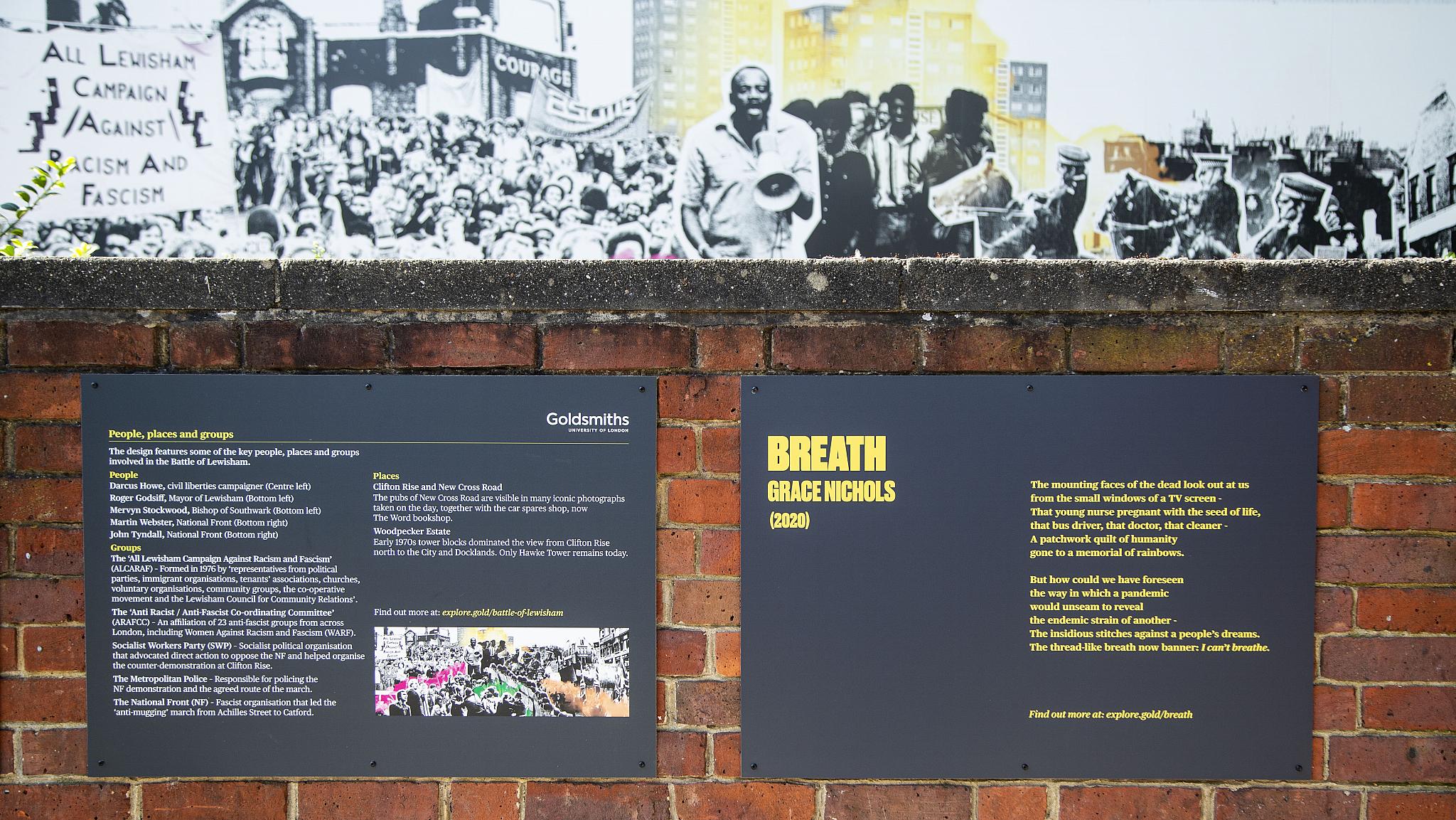Battle of Lewisham poem – ‘Breath’
Article
Poem responding to the 1977 Battle of Lewisham by acclaimed writer Grace Nichols installed alongside permanent public artwork to commemorate role of women
Inspired by the Battle of Lewisham and its legacy, Breath (2020) by Grace Nichols connects the events in Lewisham on 13 August 1977 with the Black Lives Matter movement and the impact of Covid-19 on black communities:
The mounting faces of the dead look out at us
from the small windows of a TV screen -
That young nurse pregnant with the seed of life,
that bus driver, that doctor, that cleaner -
A patchwork quilt of humanity
gone to a memorial of rainbows.
But how could we have foreseen
the way in which a pandemic
would unseam to reveal
the endemic strain of another -
The insidious stitches against a people’s dreams.
The thread-like breath now banner: I can’t breathe.

The poem was commissioned to highlight Black women’s participation in history, which often becomes eclipsed in cultural memory by men’s more public visibility.
Dr Osborne said:
‘There could be no more fitting way to pay tribute to women's centrality in the legacies of anti-racist protest than by commissioning a poem by Grace Nichols. It is an act of Landmark Poetics.’
‘It exerts the power of poetic license in memorialising Black people's lives. It is monumental on two fronts: as public landmark, as public art. ‘
‘The echoes from history reverberate strongly in the clarion call to action through remembrance and recognition of those Black citizens past and present, to whom the modern British nation continues to owe such a remarkable debt.’
Commenting on the process of writing a poem in response to the Battle of Lewisham, Nichols said:
‘The poem surprised me because I didn’t set out to write directly about the Battle of Lewisham or about the terrible incident with George Floyd, but both events, linked by racism, came together. That is how I came to write it.’
About the poet
Grace Nichols FRSL moved to Britain from Guyana in 1977, the year of the Battle of Lewisham. She has been a significant figure in Caribbean-British poetry ever since, and was awarded the Commonwealth Poetry Prize for her iconic collection, I is a Long Memoried Woman in 1983.
That was followed by The Fat Black Woman's Poems (1984) and over the decades many volumes of memorable poetry. In her most recent collection, Passport To Here and There (2020) she seeks to “preserve experiences, people and places in an effort to save them from time’s erasure”.
Nichols’ poetry has been an essential fixture on Britain's GCSE curriculum - one of the few Black writers in Britain to be included. She belongs to the generation of post-war Caribbean-heritage poets who transformed Anglophone poetry.
Dr Deirdre Osborne co-founded the world-first MA Black British Writing with Prof. Joan Anim-Addo in 2014 and it is offered by the Department of English with Creative Writing.